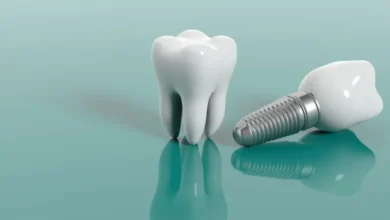Recognizing When You Need Help

Recognizing when you need help is a critical skill that can lead to significant improvements in your mental, emotional, and physical well-being. Whether you’re dealing with stress, mental health issues, physical ailments, or even just the complexities of daily life, understanding when to seek support is vital. Here are several signs and strategies to help you recognize when it’s time to reach out.
- Feeling Overwhelmed or Hopeless
One of the most apparent signs that you need help is a persistent feeling of being overwhelmed. If daily tasks that used to be straightforward now seem insurmountable, or if you feel a sense of hopelessness about the future, it might be time to seek help. These feelings can be indicative of underlying issues such as depression or anxiety, and addressing them with a professional can provide relief and a way forward.
- Changes in Mood or Behavior
Significant changes in mood or behavior can indicate that something is off. This might include increased irritability, frequent mood swings, or behaviors that are out of character, such as withdrawing from social interactions or neglecting personal hygiene. Such changes are often a cry for help from your body or mind, suggesting that it’s time to consult someone, whether it’s a mental health professional, a trusted friend, or a family member.
- Physical Symptoms
Physical ailments often signal underlying health issues that require attention. Persistent symptoms such as headaches, stomach problems, fatigue, or changes in appetite can indicate that something is amiss with your health. It’s crucial not to ignore these signs, as doing so can exacerbate the problems and lead to more serious conditions. Listening to your body and seeking medical advice promptly is essential for maintaining your health and preventing further complications. It’s important to make sure you follow the advice you’re given, whether it’s quitting work or moving into somewhere like Eastleigh Care Homes.
- Substance Use
An increase in substance use, whether it’s alcohol, prescription drugs, or other substances, can be a sign that you’re trying to cope with issues that are better addressed through professional help. Substance use can mask underlying problems and often complicates them, making it crucial to recognize this pattern and seek help to address both the substance use and the underlying issues.
- Trouble at Work or School
If you’re finding it increasingly difficult to concentrate or maintain your performance at work or school, this could be a sign that external issues are affecting your cognitive functions. Whether it’s stress, emotional distress, or mental health issues, recognizing these signs early on and seeking support can prevent further complications in your professional or academic life.
- Social Withdrawal
Isolating yourself and withdrawing from social activities that you used to enjoy can be a sign of depression or anxiety. If you notice that you’re avoiding social interactions and often prefer to be alone, it might be beneficial to talk to someone about how you’re feeling.
- Feedback from Others
Sometimes, we may not recognize the signs that we need help, but those around us might. If friends, family, or colleagues express concern about your well-being, it’s worth taking their observations seriously. Often, others can see changes in us that we might not see in ourselves.
Conclusion
Recognizing the need for help is a strength, not a weakness. It’s an essential part of taking care of your mental and physical health. If you notice any of these signs, consider reaching out to a healthcare provider, counselor, or someone you rust. Seeking help is a proactive step toward maintaining your health and well-being, ensuring that you have the support you need to navigate life’s challenges effectively.



